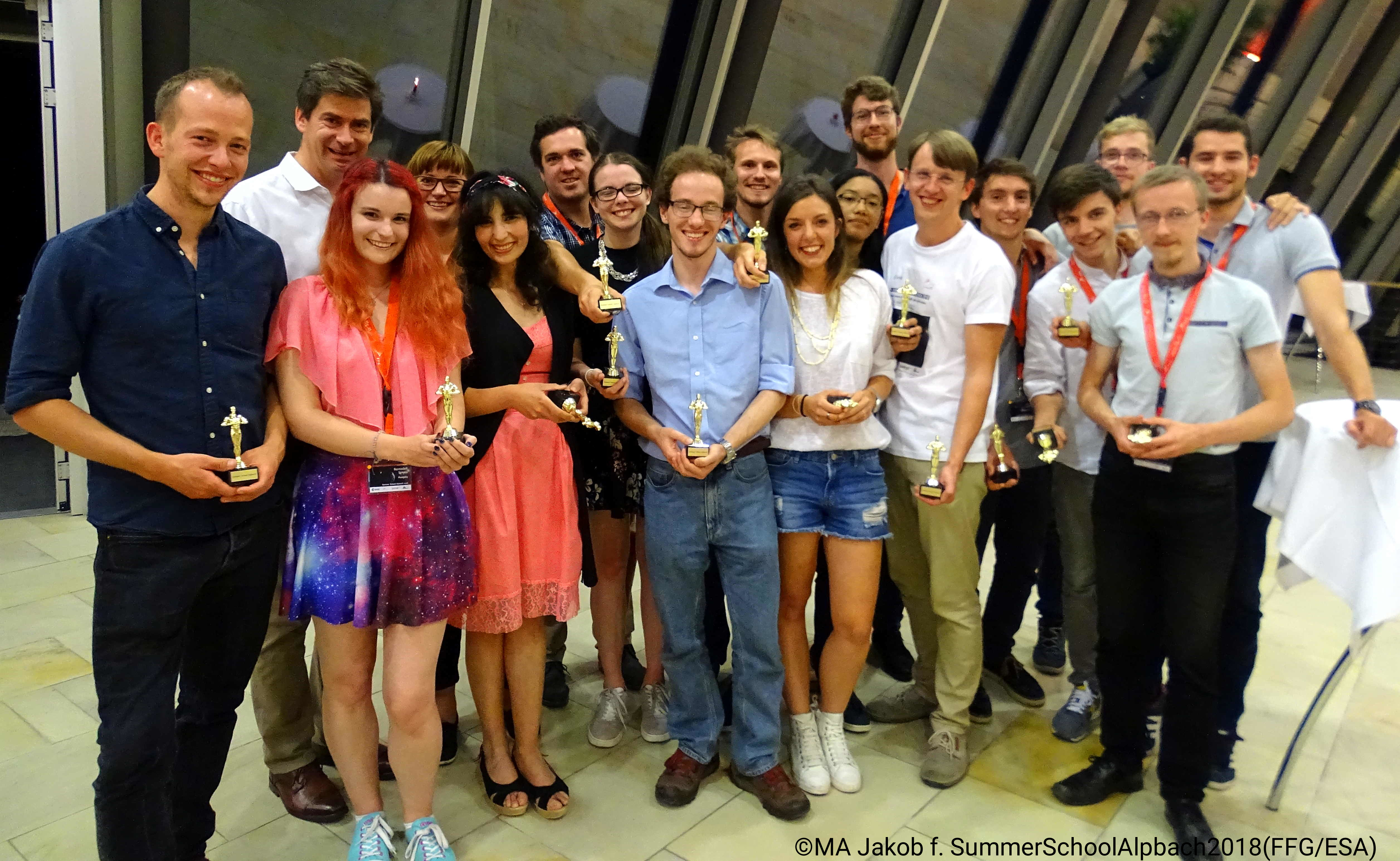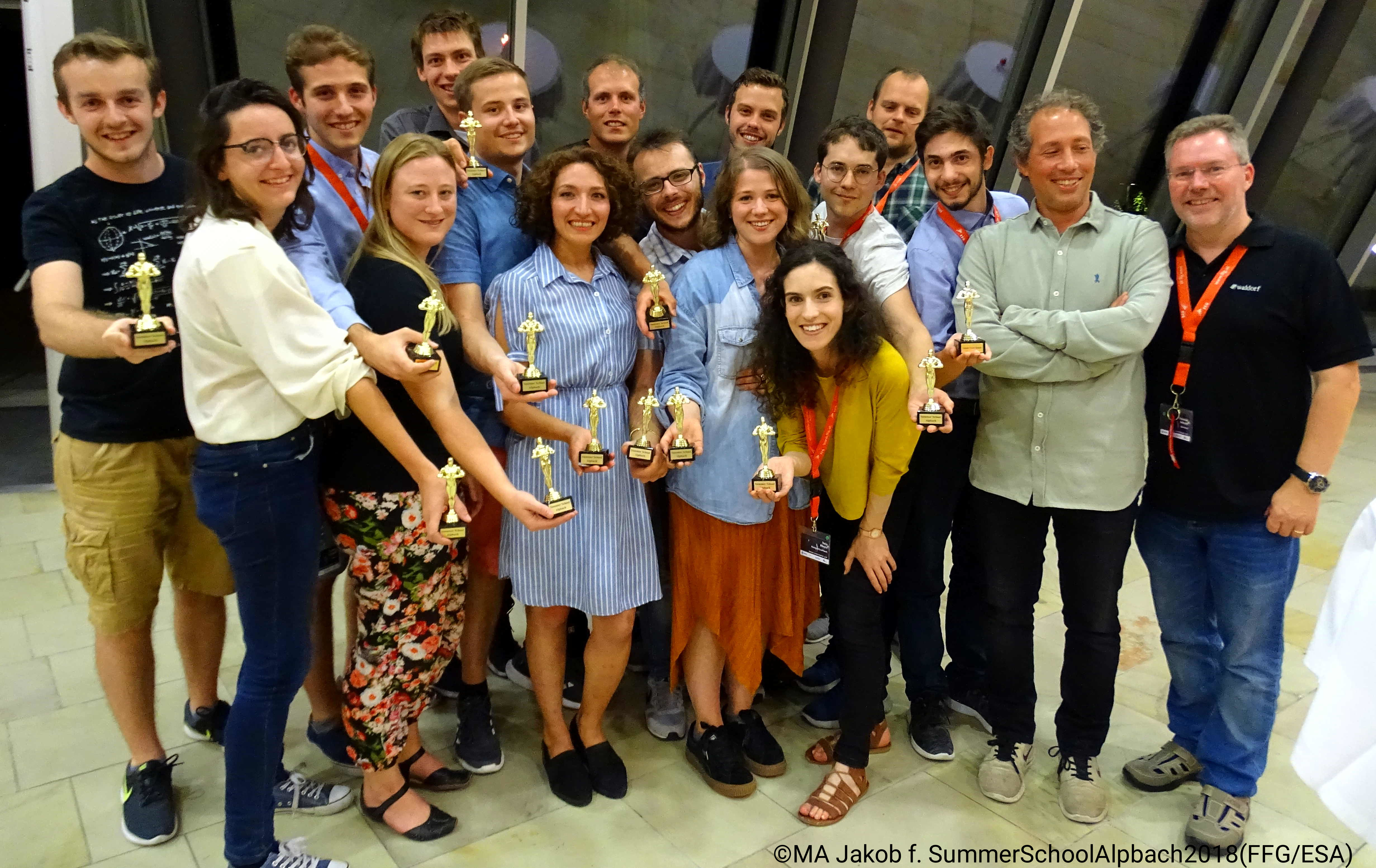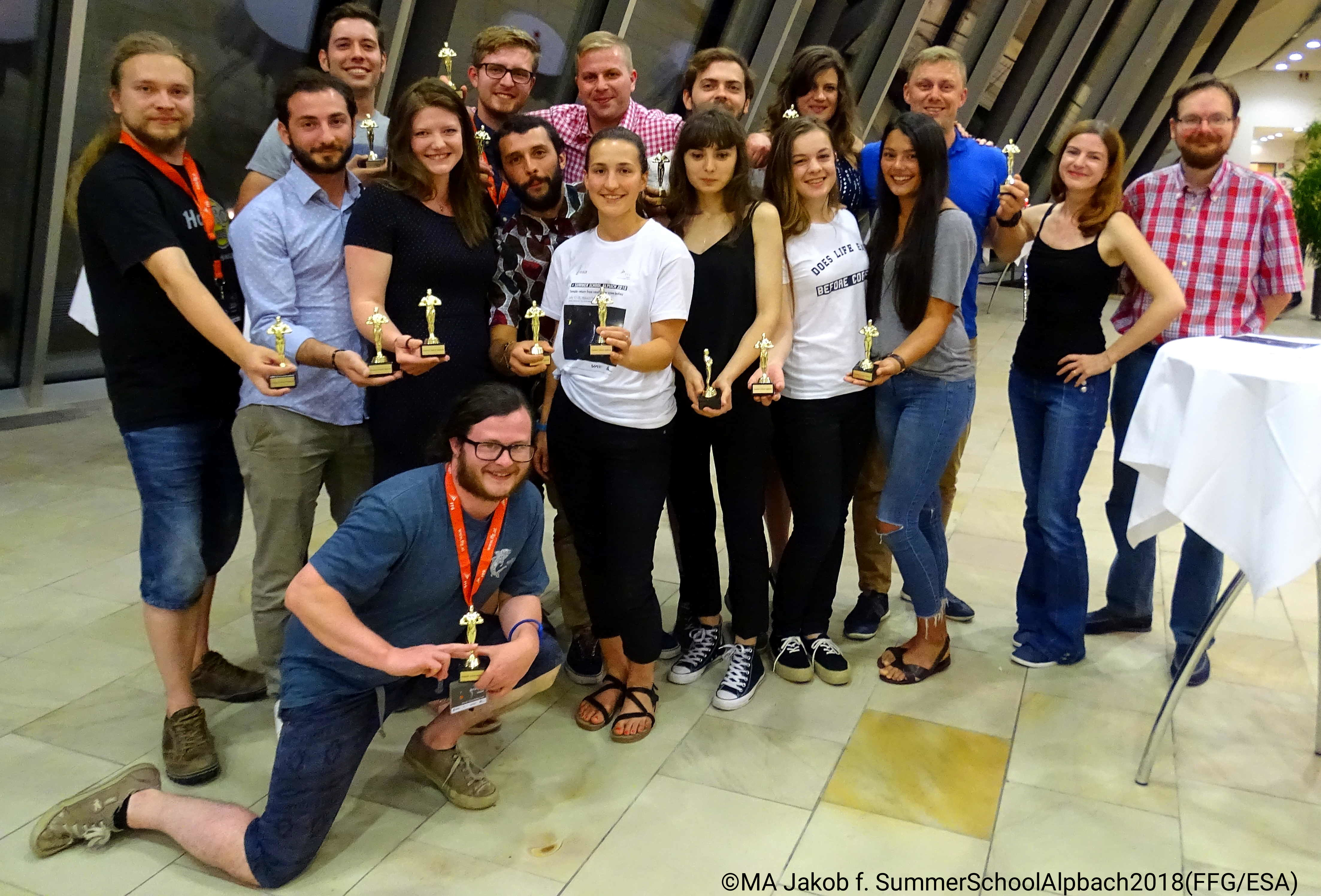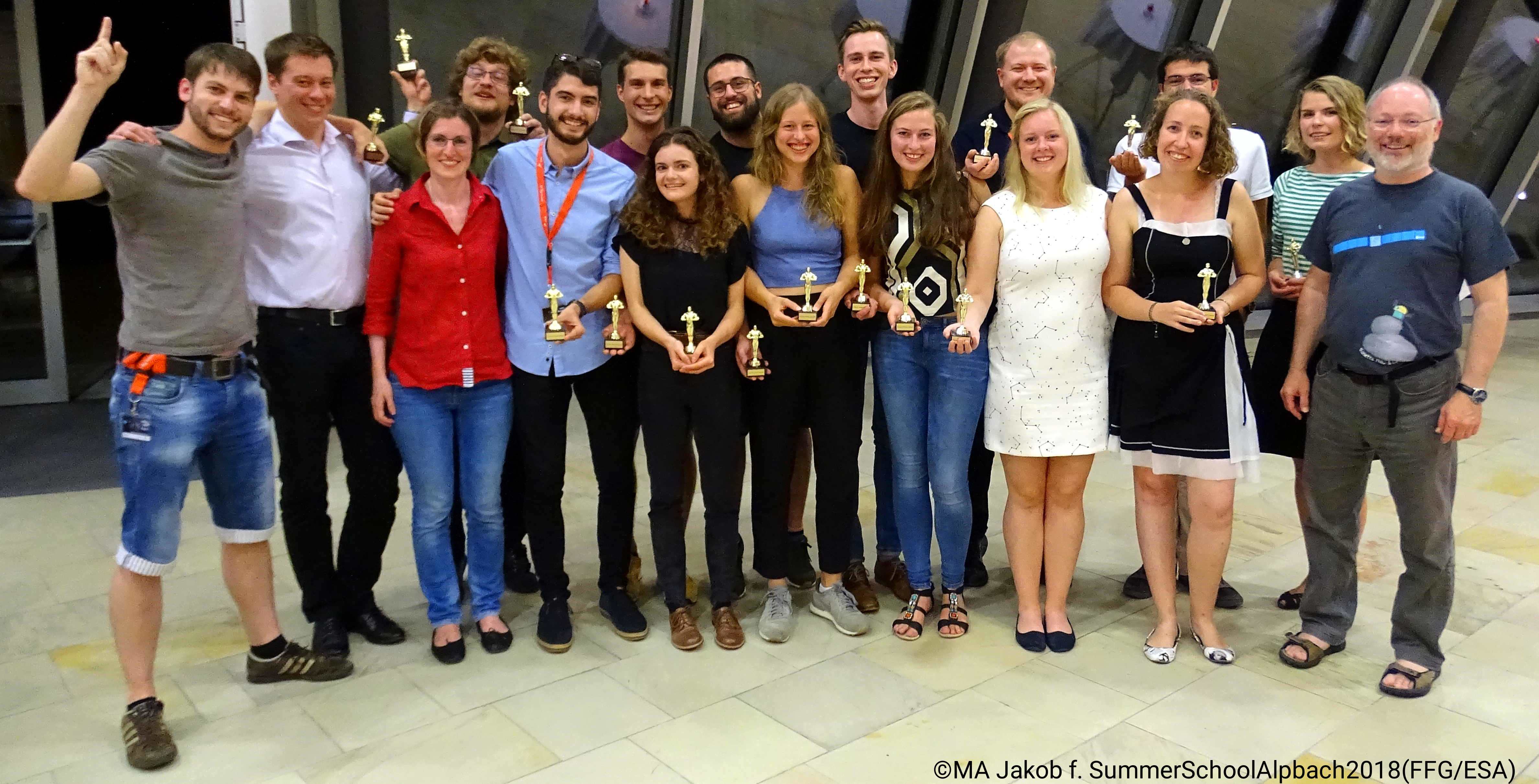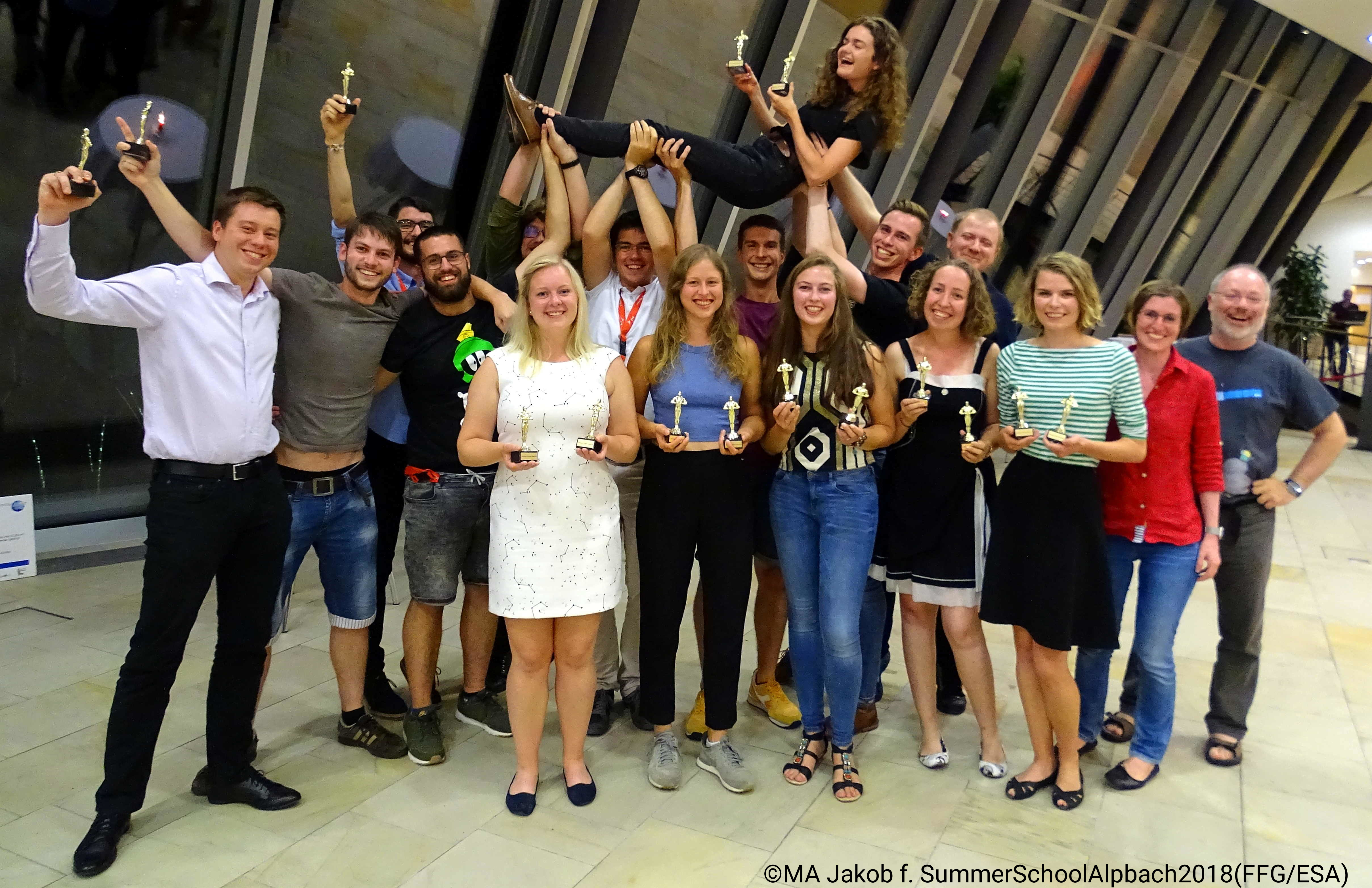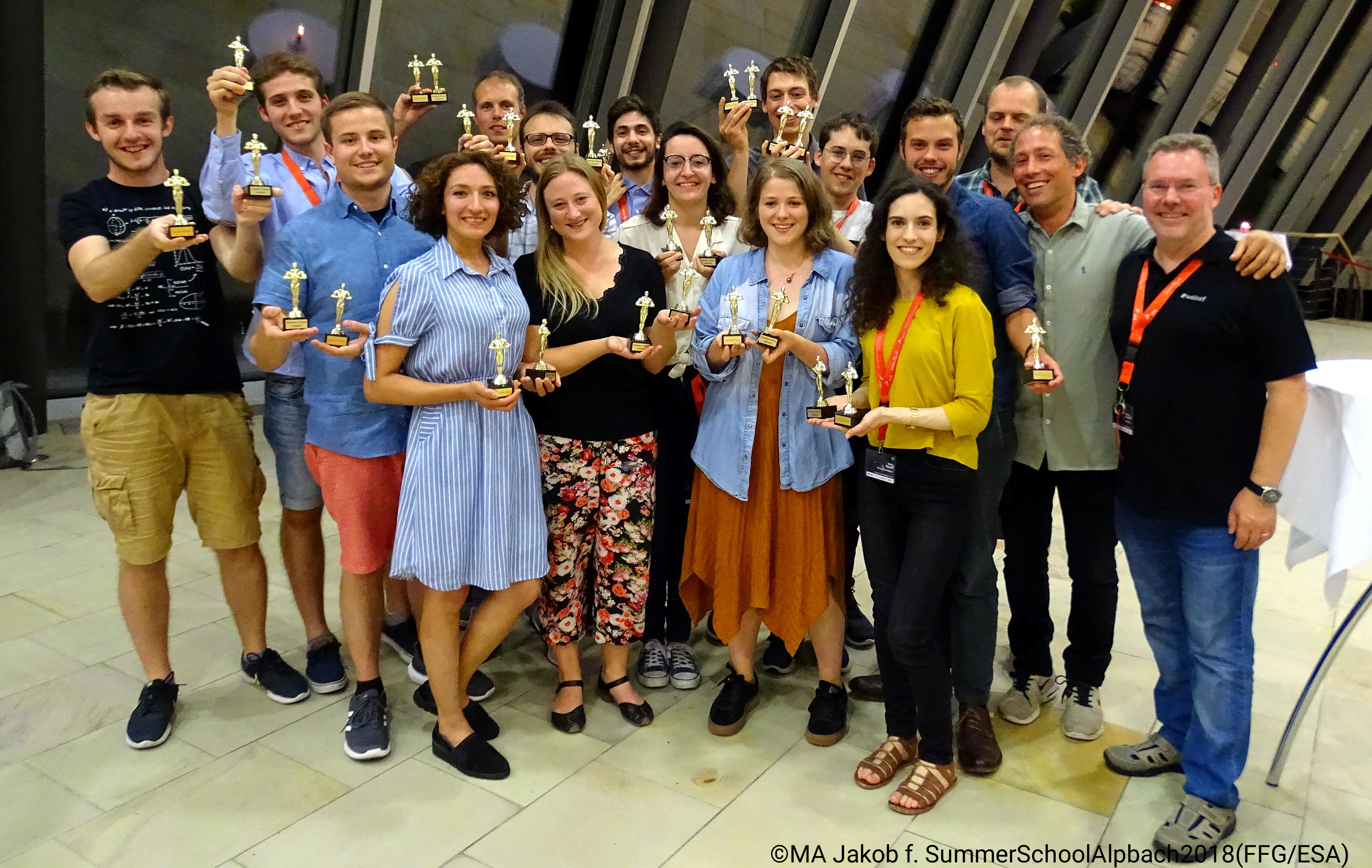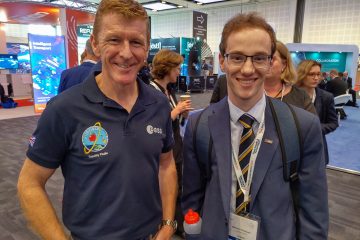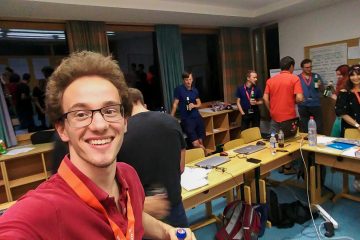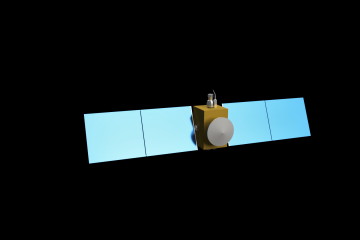Day 10 in Alpbach, the final day of the Summer School, was all about the final presentations. The order of them was randomly chosen by the judges, with my Orange team being picked to go first. We were a bit nervous, with so much work over the past nine days having gone into what we were about to present. Our presentation was set to last an hour, with 30 minutes then following for questions from the judges.
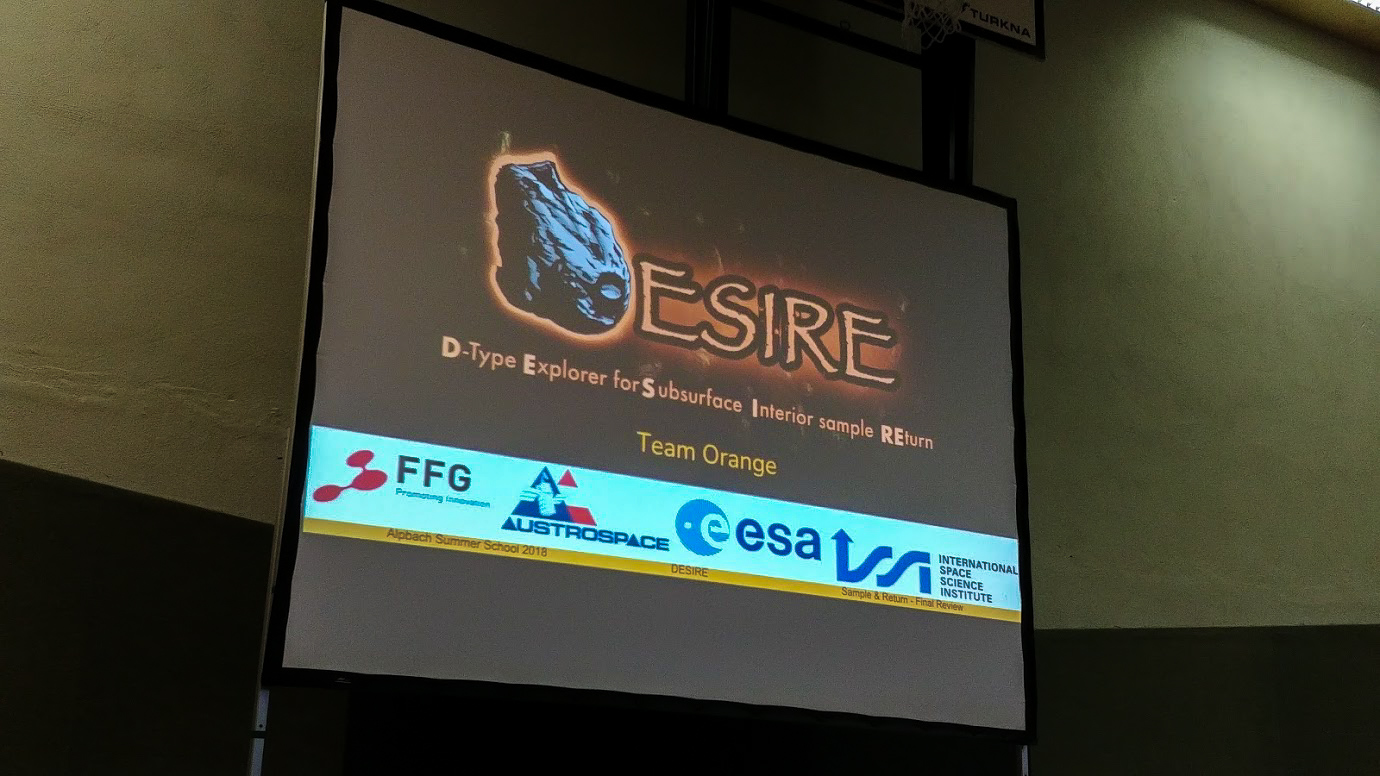
Several of the team were presenting and I spoke about our team’s slides about some of our spacecraft’s requirements and systems. These included the on-board computer (OBC), and power and telemetry, tracking and commanding (TTC) systems.
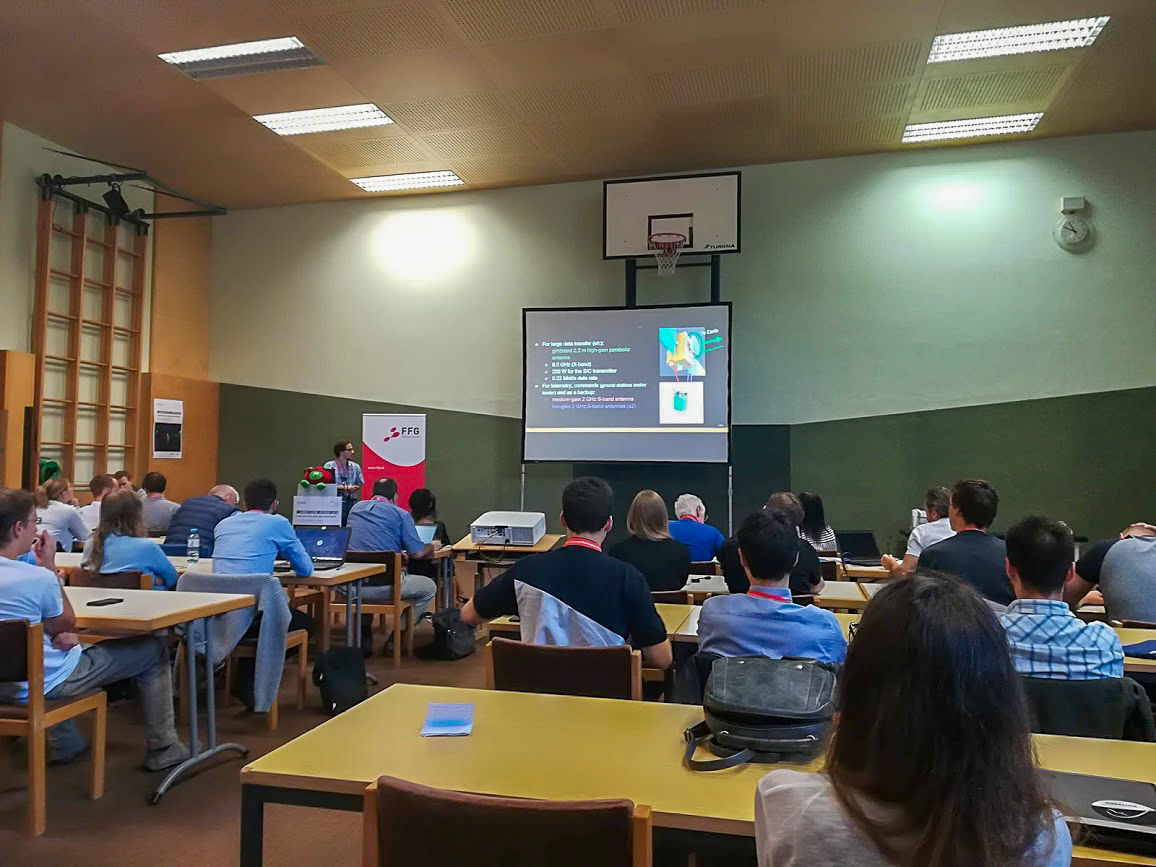
The presentation really flew by and soon our hour was up and we had finished on time, with the only hiccup being a couple of non-functional animations. Then it was time for the judges, including Head of the Jury Roger Bonnet, to find out through their questions whether we really understood what our mission was about and how it would work.
All the questions from the judges were fair, but they were challenging too. Asked how we would get young people involved in the mission, I said we could offer opportunities such as internships and work experience to students, who may have innovative ideas that could complement the great experience of older team members.
Not long after, the judges were happy and our questions complete, with it being time for a break before the next presentation. My whole Orange Team was relieved to have made it successfully through the presentation and people from other teams congratulated us on a good presentation.
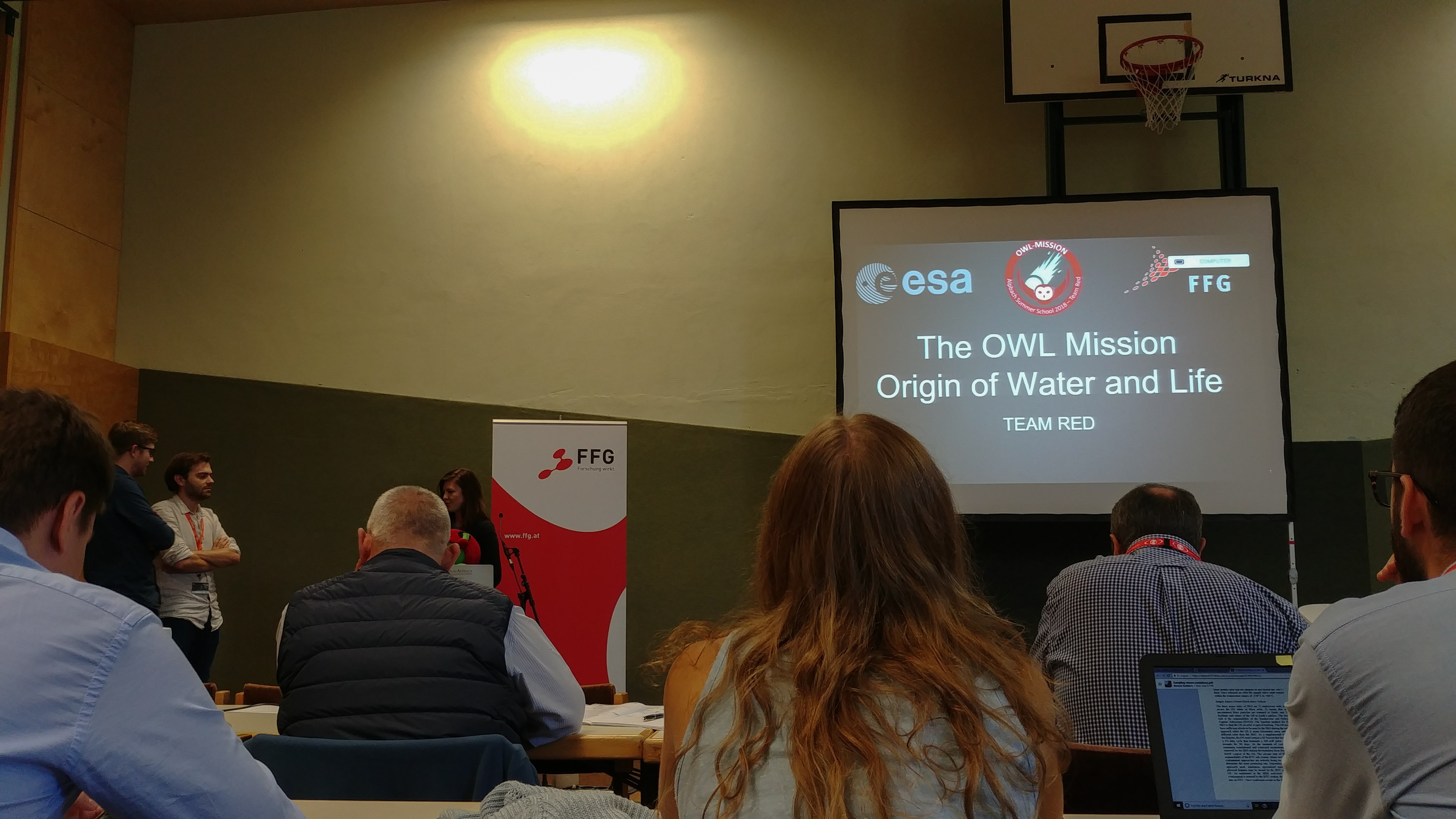
The presentations continue
After the break, Team Red were the second to present, with their Origin of Water and Life (OWL) mission. Their mission was to target Comet 45P/Honda–Mrkos–Pajdušáková to study its composition and properties to determine the role of comets in the delivery of water and organic compounds to Earth.
Team Red’s mission was the only one of the four to be targeting a comet, so it was really interesting to hear about this mysterious type of body and find out what science we could glean from them.
After lunch, the third presentation came from Team Blue, with their Calathus mission to the asteroid Ceres. The team presented a really interesting mission to this mysterious body, which has been explored by NASA’s Dawn spacecraft since 2015. The real highlight of the presentation though was the truly excellent presenting by Lucy Kissick, who’s studying for a PhD in Martian geology at the University of Oxford. Her passion for the subject was very clear, her voice well modulated and her sentences smooth. She obviously knew exactly what she was saying and really enthused the audience. Lucy’s part of Team Blue’s presentation was probably the best public speaking I’ve ever seen.
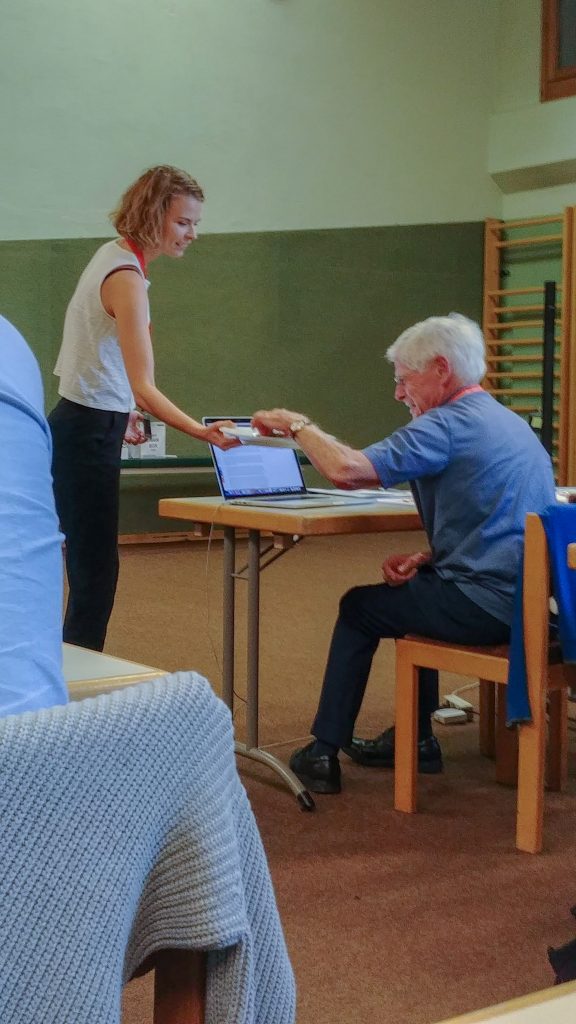
What was more unusual with Team Blue was the method they had settled upon for their outreach (for which Lucy made an excellent example video). The team decided they would make chocolate treats that would represent the various layers on Ceres’ inner structure. They even made some in advance of the final presentation and gave samples to the judges, something which the other teams jokingly considered bribery.
Overall though, Team Blue’s presentation was excellent and gave a very interesting and compelling science case for their mission to Ceres. There was a break after the presentation, during which we congratulated the team for their hard work.
Last to present were Team Green, with their CARINA mission to asteroid 2002 AT4. The questions they sought to answer included the relationship between comets and asteroids and the origins of water and life on Earth, so it promised to be just as interesting a mission as the others.
Team Green described how their mission would use a bristle and harpoon mechanisms to collect samples from 2002 AT4, with the bristles collecting up to 300g of regolith and the harpoons collecting samples from a depth of up to 24cm. CARINA was certainly an interesting proposal.
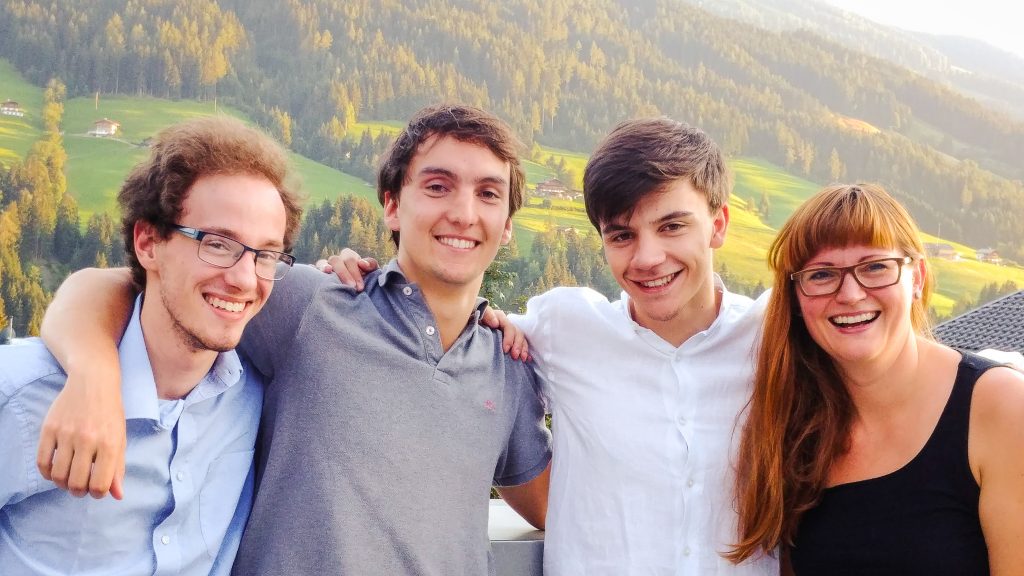
After Team Green’s presentation, Head Tutor Peter Falkner gave some closing remarks, describing how all the presentations and reports had been of a high quality and how all the teams had worked extremely hard to meet the deadlines throughout the summer school. We then had a couple of hours to relax while the Jury met to decide the winners. I returned to my guest house for some well-deserved rest, then at 19:30 we all assembled at the Alpbach Congress Center for the farewell dinner.
As we waited outside the Congress Center for the dinner to start, we had some great views along the valley. We also knew it would be the last time the whole cohort would be together, so we presented our Tutors with some small gifts and got lots of pictures of our groups. Then, as the sun was setting below the steep Austrian mountains, we headed inside and took our seats.
The judges presented several awards. The first award went to my Team Orange, for the best written report. We were really pleased to receive the award and I was particularly happy that my work to proofread and tidy up the report before its submission was recognised.
Team Blue were given the award for the best technical case due to their very detailed description of their mission’s systems. They also won the award for best presentation – with Lucy’s amazing performance this was practically a given and it was great to see the team lifting her above them to recognise her contribution themselves.
Team Green won the award for the best science case. They earned this by describing in depth each of their scientific instruments and what data they would collect. Peter Falkner also award Team Green the head tutor award for excellent work overall.
Finally, Team Red won the award for the most competitive mission, with this award being given to the team whose mission has been judged to provide the best value for money.
Celebrations and Farewells
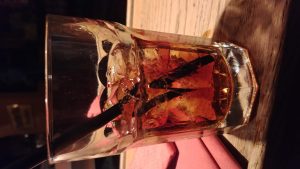
After the award ceremony, it was time for some well-earned relaxation. The whole cohort walked into the village, where we enjoyed some celebratory drinks as we said goodbye to those who’d be getting flights early the next morning.
After a little while, it was time for us to head to bed. It had been a very long day of presentations, awards and goodbyes. It had also been the final day of the 2018 Alpbach Summer School. The whole time had gone by in a whirlwind, but was a truly amazing experience.
